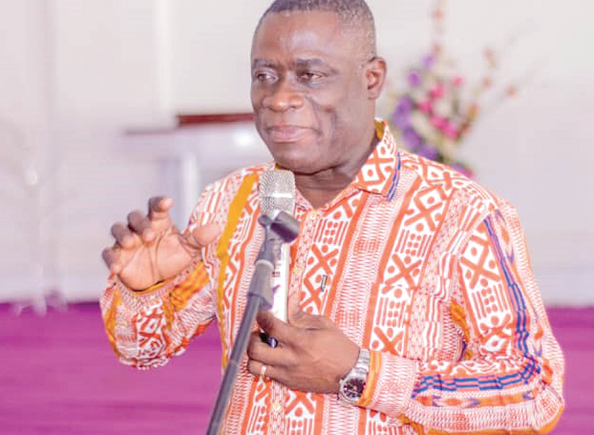
Empower youth to enhance living standards — Ablekuma North MCE
The Ablekuma North Municipal Assembly is endowed with huge economic and human resources that need sustained efforts to transform them to bring the needed improvement in the lives of its people.
It is, therefore, incumbent on the assembly to economically empower the youth and entrepreneurs in the municipality to enhance the living standards of the people.
The Municipal Chief Executive (MCE), Mr Kofi Ofori, stated this during the first Community Needs Assessment Forum for seven electoral areas in the municipality towards the preparation of the 2018-2021 Medium Term Development Plan (MTDP) for the assembly.
Major stakeholders
The two-day forum was held separately for the Sakaman, Otaten and Odorkor electoral areas on one side, and Kwashieman, Darkuman East, Darkuman West and Awoshie on the other.
It brought together assembly members, traditional rulers, religious leaders, members of identifiable groups and artisans, as well as heads of departments.
Even though Mr Ofori acknowledged that the task ahead for the development of the newly created municipality was a herculean one, he was of the belief that “the resolve to see an enviable municipality should spur all stakeholders on to overcome all envisaged constraints and challenges.”
He said the municipality, which was carved out of the Accra Metropolitan Assembly (AMA), had a limited period during the public hearing on community needs, which will invariably form the basis of the assembly’s MTDP for 2018-2021.
Participatory democracy
Mr Ofori said by law, the assembly was required to engage the public throughout the plan preparation processes in order to make it participatory and legitimate, hence the forum.
The MCE expressed worry about the poor sanitation conditions in the municipality and asked for effective and innovative strategies that could be adopted to overcome the challenges and improve upon the situation.
During the public discourse, stakeholders were unanimous that some of the major problems confronting the electoral areas included poor drainage, resulting in the flooding of most areas any time there was a downpour; poor road network, lack of streetlights in certain areas, indiscriminate dumping of garbage, especially into drains—culminating in choked gutters and insanitary conditions, as well as lack of markets and lorry stations.
Taking stakeholders through steps in preparing the MTDP, Hajiah Mamata Musah Sheriff, a Development Planning Officer of the assembly, said the forum was the first in a series of three public hearings to take place.
Hajiah Sheriff said after the first one, which was basically consultative in nature to collate the concerns of stakeholders from the various electoral areas, a second one would be held to confirm whether the views collated reflected what the stakeholders expressed during the first public hearings.
Finally, she said a third one would be held for a draft copy to be shown to them before taking it to the assembly’s general meeting for adaptation and approval and onward submission to the National Development Planning Commission (NDPC) through the Regional Co-ordinating Council (RCC).
